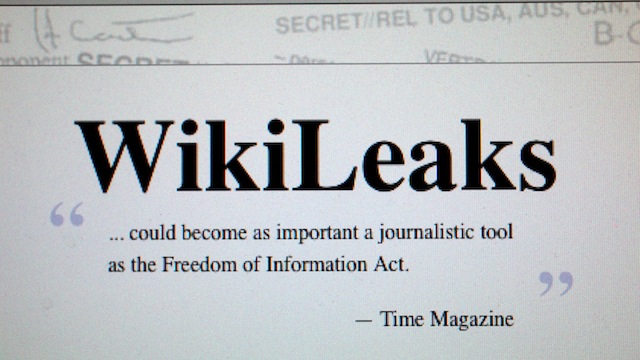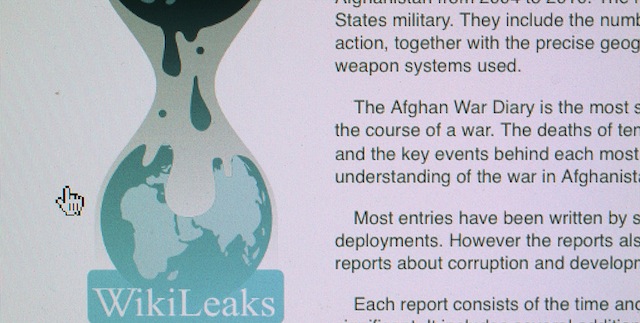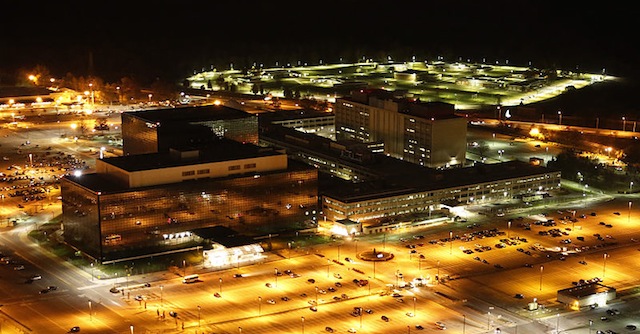
(Getty)
Have you ever visited Wikileaks.org? If you have, for any reason, there is a good chance you could have been a target of government surveillance. New document’s published today on Glenn Greenwald’s The Intercept, reveal the extent to which the US’s National Security Agency (NSA) and the UK’s Government Communications Headquarters (GCHQ) went after Wikileaks.
Here is what you need to know.
1. The Program is Called ‘ANTICRISIS GIRL’

(Getty)
According to a classified informative Power-Point presentation about the program, ‘ANTICRISIS GIRL’ is run by the United Kingdom’s GCHQ and designed for “targeted website monitoring.”
The program allows for the collection of unmasked IP addresses visiting the website as well as collecting other analytical data, like what keywords visitors searched in order to get to Wikileaks.
According to The Intercept, GCHQ refused to comment on whether the program is still active.
2. The NSA Tried to Get Wikileaks Labeled a ‘Malicious Foreign Actor’

(Getty)
Another part of the report, written by Greenwald and Intercept writer Ryan Gallagher, shows how the NSA tried to get Wikileaks registered as a “Malicious Foreign Actor” which would enable them to survey all communications coming to or from the organization.
According to the article, the documents reveal the NSA’s rational behind the re-classification saying:
If the foreign IP is consistently associated with malicious cyber activity against the U.S., so, tied to a foreign individual or organization known to direct malicious activity our way, then there is no need to defeat any to, from, or about U.S. Persons. This is based on the description that one end of the communication would always be this suspect foreign IP, and so therefore any U.S. Person communicant would be incidental to the foreign intelligence task.
3. The Documents Suggest Limited Oversight

Glenn Greenwald.
One of the most disturbing parts of the new documents is the limited oversight over the boundaries between legal and illegal targets for surveillance.
In principle, the NSA needs special permission, often gained through the secretive FISA Court, to survey U.S. citizens. This is reiterated in the newly released communication from the NSA’s lawyer over a data request: “As long as they are foreign individuals outside of the US and do not old dual citizenship…then you are okay.”
However, the rule is clearly not enforced strictly. In another published communication, the NSA counsel tells someone who has accidentally gathered information about a US citizen, “it’s nothing to worry about,” so long as they submit the mistake in a report.
This revelation has raised concern that NSA analysts could be gathering information illegally without oversight so long as they leave the queries off their reports.
4. The Surveillance Was Revealed by Edward Snowden Leaks

The current revelation about the NSA and the “five eyes” surveillance partners (United States, United Kingdom, Cananda, Australia, and New Zealand) is the most recent to be made from the thousands of documents leaked by whistleblower and former-NSA contractor Edward Snowden.
5. There is Concern the NSA & GCHQ Could Do This to Other Outlets

Trevor Paglen/WikiMedia Commons)
Oversight organizations like the ACLU and Freedom of the Press Foundation, have already expressed their concerns over the new revelations. Their concerns revolve around the notion that any of the tools or rational that the government could apply to Wikileaks can apply to many other media organizations that have published leaked material, such as NBC and the Washington Post.
In a statement released Tuesday morning, Jameel Jaffer, the ACLU deputy legal director said:
This is a very troubling report. Publishers who disclose abuses of government power should not be subjected to invasive surveillance for having done so, and individuals should not be swept up into surveillance dragnets simply because they’ve visited websites that report on those abuses. Further, the United States should not be urging allied countries to pursue prosecutions that would be unconstitutional if undertaken here at home.